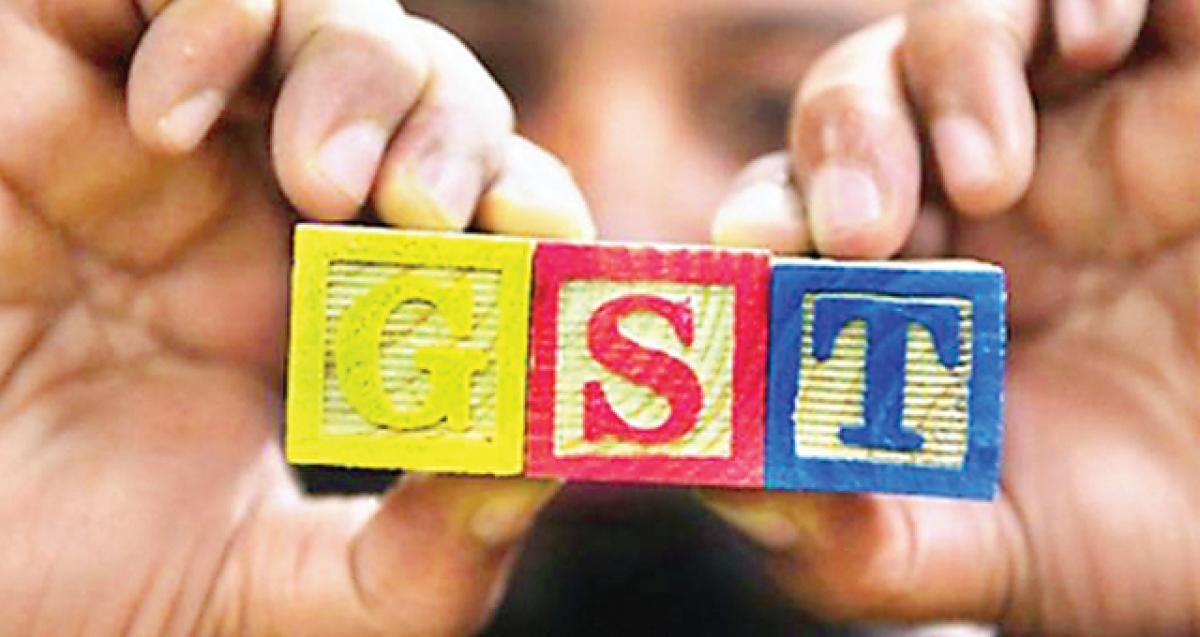Live
- Meat for Kids
- A captivating Kuchipudi ballet celebrating divine love and valour
- Second rung leaders of YSRCP clueless
- Divyanka Tripathi took up magic workshop to learn the art of magic for her new show
- Minister unveils design conclave poster
- Sonu Sood Appointed Brand Ambassador and Honorary Tourism Advisor for Thailand
- Ganja cultivation in heart of vizag
- BRS lodges complaint against CM, Minister
- When Preity Zinta embarrassed her mother by stuffing oranges in her clothes
- Cong MLA likens KCR to Godse
Just In

Jaitley’s informal meeting with state finance ministers failed to arrive at a common ground on how the Centre and states will control assessees under the new regime that will subsume an array of taxes like excise duty and service tax as well as VAT (value-added tax), multiple ministers participating in the meeting said.
New Delhi : Stalemate between the Centre and states over administrative control under the proposed goods and services tax (GST) regime continued on Sunday with an informal meet called by Finance Minister Arun Jaitley failing to break the deadlock.
Jaitley’s informal meeting with state finance ministers failed to arrive at a common ground on how the Centre and states will control assessees under the new regime that will subsume an array of taxes like excise duty and service tax as well as VAT (value-added tax), multiple ministers participating in the meeting said.
With states unrelenting on their position of being given right to control all assessees with up to Rs 1.5 crore of annual turnover, it was decided that officials would meet again on Monday before the meeting of the all-powerful GST Council on November 25.
“The meeting has remained incomplete. Discussions will continue on November 25,” Finance Minister Arun Jaitley told reporters after the over three-hour long meeting.
The issue has remained a contentious one during the previous two GST Council meetings and any disagreement at the next meet holds potential of derailing rollout of the GST from the targeted April 1, 2017. Jaitley had earlier this month stated that the proposed GST needs to be rolled out by September 16, 2017, before the validity of the Constitutional Amendment brought in by the Centre and ratified by the states expires.
States like West Bengal, Kerala, Uttarakhand, Uttar Pradesh and Tamil Nadu have insisted on exclusive control over small taxpayers, who earn less than Rs 1.5 crore in annual revenue, for both goods and services. Uttarakhand Finance Minister Indira Hridayesh said states demanded exclusive control for both goods and service tax assessees of Rs 1.5 crore and below.
“The Centre is agreeable on goods, but is not yielding on services. The states are looking at their interest to safeguard their revenue. The Centre will have to yield to the states to get the CGST and IGST Bills passed. A middle ground on the issue has to be worked out politically,” she said. Kerala Finance Minister Thomas Issac said it was a stalemate and his state was unwilling to compromise as it has virtually given up its taxation rights.
Today’s informal meeting was held sans civil servants to arrive at a political solution. According to sources, many states including West Bengal, Uttar Pradesh, Kerala, Rajasthan, Odisha and Uttarakhand, said that small taxpayers cannot be harassed by dual control.

© 2024 Hyderabad Media House Limited/The Hans India. All rights reserved. Powered by hocalwire.com







